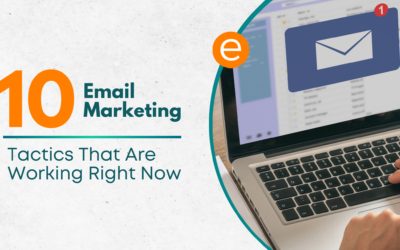Scam emails pose a threat to both your employees personally and your business as a whole. Sadly, every business owner is going to encounter scam emails at some point. But with the right precautions, you can keep your team safe from scammers.
—
You check your email and find something intriguing: a message from a foreign prince! He has inherited a large fortune but has no way to bring it into the country. And, as luck would have it, there’s something you can do to help. He will send the money through you, and in exchange for your service, you’ll get a good cut. All you need to do is send him your bank account information!
Sound familiar? Most of us at some point have received an email like this.
Unfortunately, gone are the days when scam emails were this easy to spot. In fact, many scammers today are experts at what they do, and it takes a trained eye to catch them.
How to keep your team safe from scam emails
As a business owner, it’s your responsibility to protect your business and your team from scam emails. How?
By training your team members in these two ways:
- How to identify a scam email
- What to do when you receive a scam email
When the whole team knows how to handle scam emails, your business stays safe and secure!
How to identify a scam email
Scam emails, also known as phishing emails, can be identified as long as you know what to look for.
The goal of scammers is to get personal information about you, your teammates, or the company itself. Scammers will often impersonate a familiar source like your boss or a coworker and will ask for private information like phone numbers, passwords, and bank account information.
If you’ve received a weird email and you’re wondering if it’s from a scammer, follow the steps below.
Check the email address
Is the email coming from the right address? Make sure to look closely, because scammers often use something very similar to the real thing.
Check the email signature
Many businesses have a specific email signature that all team members use. Check to see how the email is signed. If it doesn’t look right, let your supervisor know.
Pay attention to how they contact you
Does this person normally email you, or do they usually just call? Don’t ignore it if something seems out of character.
Notice the manner of speaking
Does the email sound like the person it claims to be from? Is the spelling and grammar accurate?
Look out for strange requests
Your boss shouldn’t be asking you for money, and neither should your coworkers.
If you get an email from someone asking you for money, banking information, passwords, or your social security number, be on high alert. Let your boss know ASAP if this happens.
Trust your common sense
At the end of the day, you have enough common sense to know when an email feels off.
Don’t be shy if something seems suspicious! Always feel free to ask your supervisor or coworker if an email really came from them, or show your boss something that seems weird.
Trust your instincts – if something seems fishy, it probably is.
Tip: It’s a good idea to familiarize yourself with some of the most common types of scam emails.
What to do when you receive a scam email
1. Don’t reply
When you get a scam email, don’t reply to it. Replying to a scam email confirms to the scammer that your email address is active and connected with a real person, which encourages future targeting.
2. Don’t click on any links or downloads
This is the single most important “don’t” about scam emails. No matter what, do not click on any link from a suspicious email.
Clicking a link from a scam email allows malware to be downloaded onto your computer. Once downloaded, the malware can collect your personal and business information and monitor your activity.
Clicking on a link sent from a scammer can cause a serious security breach for your business and yourself personally.
P.S. If you do accidentally click on a link from a scam email, don’t panic, but do let your supervisor know right away.
3. Tell your supervisor
Your supervisor or boss needs to know if you received a scam email. Not only because they may be the one whom the scammer is impersonating, but also so that they can alert the rest of the team to be on the lookout.
Your boss may ask you to mark the email as spam and block the sender, and they may want you to forward the email to them so they can keep a record of it.
Whatever the case may be, it’s super important to let others know when you’ve gotten a scam email.
Tip for business owners: Encourage your team to voice their concerns without embarrassment. Make sure they know that if something seems off to them, you want to know about it and will take them seriously.
Achieve your goals online with Lifedge!
At Lifedge, we understand how much work it is to run a business.
In addition to taking great care of your clients, you’re also making sure your team is safe from scammers, your products and services are top-notch, and about a million other things.
That’s why Lifedge offers high-quality digital marketing – we want to take some of those responsibilities off your plate while helping you achieve your goals. Book a meeting with us today to get started!










0 Comments